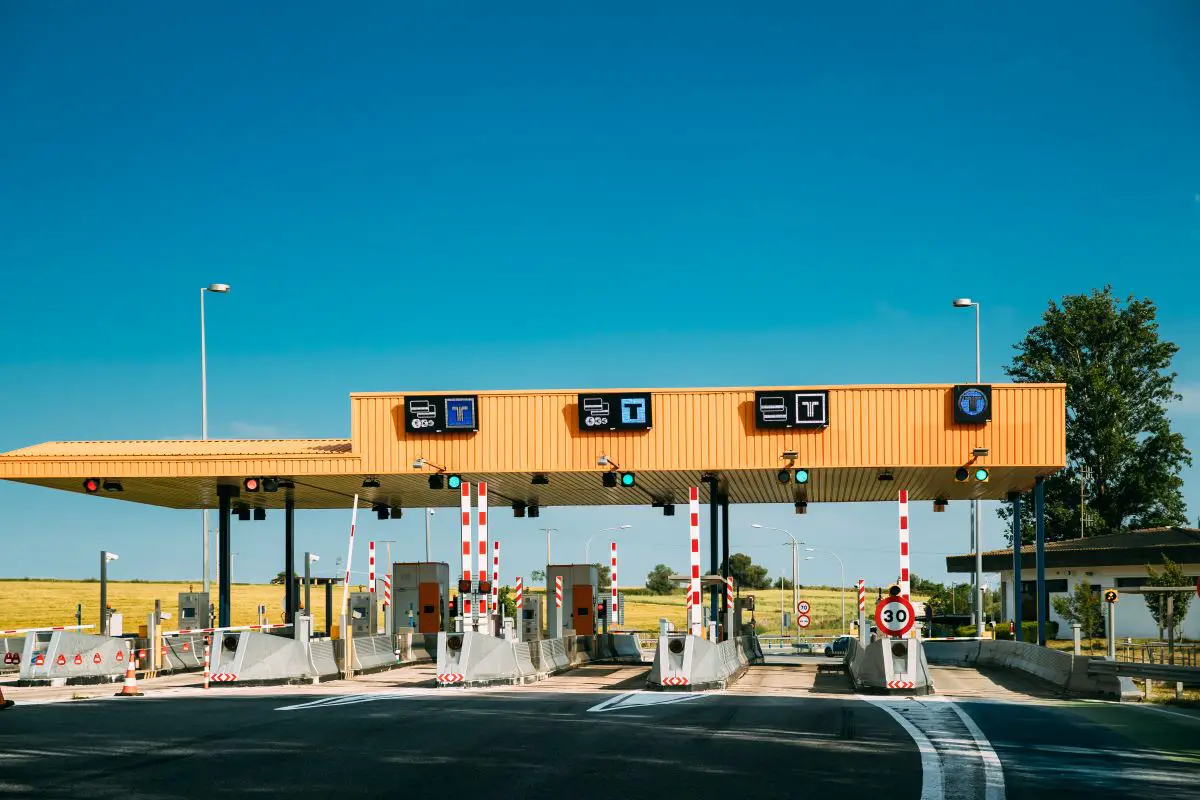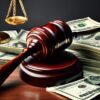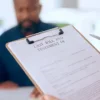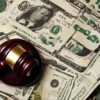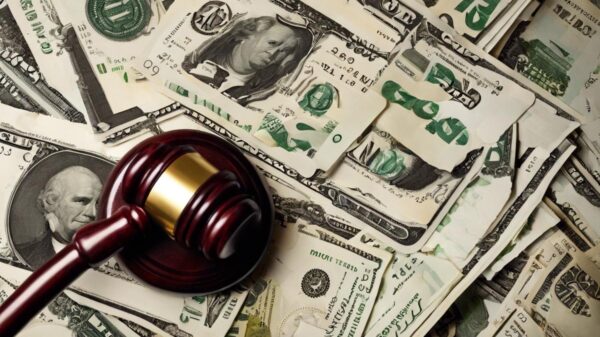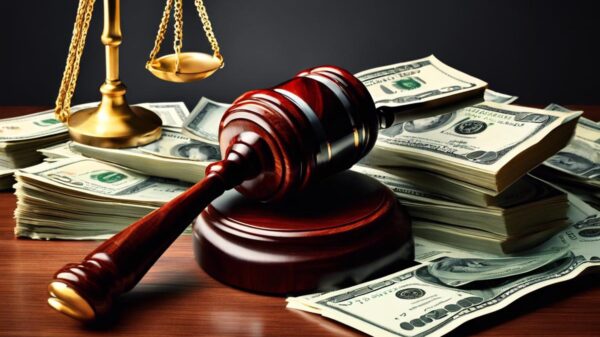Toll Booth Violation Ticket Consequences
Tollbooth violations are issued to violators that pass through toll booths without paying. The last thing you want is a bill in the mail with additional fees and fines, for something you thought was free. Many drivers get the bill in the mail days or weeks before they realize what has happened when they pass through the toll booth.
Remember, you have to pay any toll you pass through without an EZPass. If you don’t pay, they will send the bill in the mail with additional fees and fines. Here are some of the things that may happen if you don’t pay the toll booth violation ticket.
So, what happens if you don’t pay your toll booth violation ticket? When you enter a toll road in the United States, you are expected to pay. If not, expect fines. As of late, non-payment for toll roads has increased almost 4 percent nationwide. On top of that comes fees and surcharges when your account becomes delinquent.
All together these fees can add up to hundreds if not thousands of dollars. In 2009, over 240 million toll transactions were made in Florida with over $4.2 billion in revenue raised. With the upcoming opening of new roads and expansions to existing ones, the cost of transactions is expected to increase.
In summary, there will be consequences for an unpaid toll booth violation, therefore; it is wise to know the laws in the United States to prevent any legal action to happen against you.

Payment For Ticket
You are allowed to pay the toll violation fee by mail or in person at the agency office within 21 calendar days after receiving the toll violation notice. The due date length of payment depends on your specific state and county.
However, if you decide to pay it by mail, do not forget to include the payment slip received along with the notice. You must remember to enclose all required documents when paying by mail.
If you do receive a ticket but know that you paid for the toll, be sure to tell them this over the phone so that they can take care of removing the violation. If you try to pay for it online, usually the site wants a license plate number and violation number which you don’t have to have if you mailed your check-in.
Results For Failure to Pay
Some people wonder if they should pay the toll violation fee or not, but it is best to comply with this law as failure to do so will result in further penalty fees.
If you do not pay the toll, you will be charged with a crime. It is considered criminal theft of services. If convicted, your fine can be up to $500 or more and you could even go to jail for several months.
For example, when driving on-road or tunnel that has a toll, you are required to pay it to continue to use the same location. If you do not want to go through the trouble to stop at each POI (points of interest), there are many ways that you can pay online. This way, you can use your car to continue without stopping at each POI.

Toll Booth Violation Fine Increase
The first thing that will happen is that your fine will increase by $50 or more. You have 30 days to pay the original amount of the fine before it goes up.
If you fail to pay within 30 days, you will receive a notice of impending fine and additional fees. You will be required to pay the original amount, plus a $100 delinquent fee and an overtime processing fee.
If you still don’t pay, your DMV points will increase, if you have any. That doesn’t sound so bad… Right? But what happens when it gets sent to collections?
Toll Booth Violation Collections
If you receive a notice that your bill has been sent to collections, you will have a charge of $500 on top of the original amount. It may even affect your credit score because it will be reported to one or more of the three major credit bureaus.
Fast or E-Z Pass
Getting caught without E-ZPass is also known as a violation. The fee for this violation is $50 plus the toll amount (and possibly other fees). E-ZPass has a lower fee because it is cheaper for them to process; you can’t use the E-ZPass lanes without one.
If you fail to pay the fine on a toll violation within the specified number of days on the receipt of the Notice of Toll Violation, your privilege to use the Toll Facilities will be suspended and we shall notify all our participating State and Federal Agencies that your license plate(s) has been disqualified and you may be subject to late payment fees and hold on vehicle registration.
Can I Fight the Toll Booth Violation Ticket?
In most cases, you cannot. You have the option of going to court and appearing in front of a judge; however, it is unlikely that the judge will forgive your fine or make any changes.
Furthermore, there is another reason why you should not fight this type of ticket. If you fight your fine, it will be even more difficult to have the violation removed from your driving record. You should just bite the bullet and pay the fine in full.
If you do not want to go through the hassle of fighting it in court, you can try pleading guilty and then making an argument that the fine is too high. You need to supply evidence for this claim (i.e., proof of your financial situation).
I’ve found this approach works up to about $300; beyond that, the judge usually has no sympathy. Be sure to file an appeal if you fail at this first level so that you can take advantage of the second avenue for fighting.
There is also an option where you just pay the toll and not the violation, but I feel that fighting it in court is worth it. You can file your appeal and then tell them that you don’t want to fight it anymore.
The court will then usually suspend your fine if you don’t want to fight the violation. Whatever the case, you should act quickly since each state has a different timeframe for fighting your violation.
Personal Consequences
Your Privilege To Use The Toll Facilities May Also Be Suspended If:
• You fail to pay the toll and administrative fee within 30 days of issuance; or
• You fail to file a timely Notice of Objection; or
• You fail to pay the toll and penalty during the period allowed by law.

Toll Booth Violation Facts to Know
- There are no provisions for the cancellation of toll tickets issued.
- Any person who uses this road shall be deemed to have agreed to pay the fare as stipulated by the Authority and shall pay it within 1 week, or at such other time as defined in the notice given by the authority.
- If any traffic fails to pay the fare, the Authority shall have the right to recover it.
- The charge included in a toll ticket is payable for one way of the journey beginning at the point where the road is opened for public use and ending at the last toll booth or barrier on that road.
- No person who has once paid for using National Highways or State Highways can get his money back for using the same road again by paying a second time.
- If anyone fails to pay the fare, the Authority shall have the right to recover it by filing a case in court under section 77 of Central Act (No.24 of 1920) and if necessary with the help of police authorities.
- The charge included in a toll ticket is payable for one way journey and the terms and conditions of the Agreement/Concessionaire License to use highway do not provide any other means by which toll can be paid.
- If you fail to pay the fare within the stipulated time, there will be legal proceedings against you in a civil court under Section 77 of Central Act (No. 24 of 1920) and if necessary with the help of police authorities.
- The toll charged for using highways is not refundable, even in case one uses only part/portion of the road.
- If any person fails to pay the fare, he will be prosecuted under Section 77 of Central Act (No.24 of 1920) and if necessary with the help of police authorities.
- No one will be allowed to leave their vehicle at any toll plaza or barrier until the full fare is paid.
- The concessionaire shall have the right to recover the outstanding amount by filing a case in the civil court under Section 77 of Central Act (No.24 of 1920) and if necessary with the help of police authorities.
- The toll can be paid by cash or non-cash methods, mentioned on the ticket.



